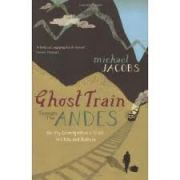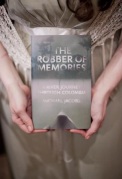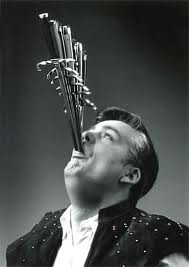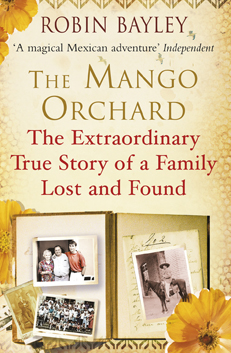I’m at Broadcasting House, the new home of the BBC World Service, for an appearance on Outlook. I am, I will admit, a little nervous. This is not just a national broadcast, it’s the Whole World. And it’s live.
With ten minutes before we’re on-air, I am taken through to the studio by a producer called Jane, to meet Jo Fidgen, the presenter. She is charming, has a remarkably soothing voice, and eyes almost as blue as her hair. We talk briefly about how she plans to tackle the complex story of The Mango Orchard in the seven and a half minutes allotted.
I am escorted to the sound booth, where there are four producers, each at their station, like naval officers at the bridge of a ship. There is an air of ordered panic. There are three minutes until we go live “We’ve lost twenty seconds” calls one, “Twenty seconds of dead air. I think it’s in Nigeria.” Phone calls are made.
There are two women in the corner with electronic stop watches and clip boards. “We’ve shaved seven seconds of the first piece,” says one. One of the producers turns to me and says, “That’s good, seven more seconds for us.”
We’re in to the news and then the programme begins. The first item on the programme is a pre-recorded interview with three Irish women. Jane turns to me and says, “This is a bit depressing”. It is an understatement. The women discuss, in the most explicit detail imaginable, how, behind the façade of a respectable Dublin existence, their father groomed, abused and raped them. For years. There is absolute silence in the control booth, broken by one of the producers: “I feel physically sick”. She then turns to me and says, “We’re looking to you for some light relief!”
“I know some great jokes about the Pope?” I offer. As one, the four producers and the two women with stop watches turn round with panic on their faces.

Perhaps not.
The main producer turns round to me when it has two more minutes to run and says with a cheery smile, “You’re on!”
I feel like a Vaudeville act, asked to follow a performer who had got up on stage and read an autopsy report.
I had deliberately not looked up World Service audience figures. It’s obviously a lot, but when you are talking on live radio about a book you have taken five years to write, and don’t want to screw up, you really don’t want to know numbers. As we go to the studio, Jane says casually, “There’ll be about 40 million people listening.”
Yikes.
I am trying to imagine what forty million people looks like. If they all linked arms, could they reach the moon? How impressive would the tsunami be if they all jumped up and down at the same time? If they all called the same pizza take away restaurant, how long would it be until everyone had their meal?
Jo is looking at me. It’s time to answer the question. That I didn’t hear. I guess what it was and talk for a while. She asks me some more questions and I try to answer them as concisely as I can and before I know it, our seven minutes thirty-seven seconds of talking to 40 million people comes to an end.
Read Full Post »





